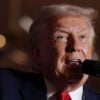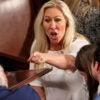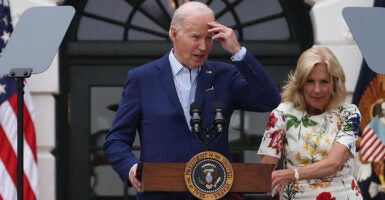In the transparency case over a recording of President Joe Biden’s interview with special counsel Robert Hur, a lower court ruling could reach a verdict in August, one involved lawyer says. But he says that “fevered, emergency appeals” are likely to follow, regardless of the outcome.
Biden invoked executive privilege to shield release of the audio recording, although an edited transcript has been released of interviews in which the president showed “diminished capacities,” according to Hur’s report on Biden’s possession of classified documents.
“They altered their released transcript, which is a very big deal in that the arguments they’ve been making for not releasing the audio is that the transcript is already out there and you don’t need the audio,” Mike Howell, executive director of The Heritage Foundation’s Oversight Project, said Wednesday in a conference call with reporters.
“Now we know those are two different things,” Howell told reporters of the White House’s position. “They claim some of the edits they made were for duplicative words or pauses. But their statement wasn’t universal in that ‘we only made changes.’ We are not sure what the universe of edits that they made are.”
In February, Hur released his report on Biden’s improper possession of classified documents from his vice presidency and Senate tenure. Hur declined to charge the president, in part because of what he called “diminished faculties” evident during his interviews with Biden.
The Justice Department contends that only slight edits were made to the transcript, but released the court filing late Friday, when it was less likely to gain news attention. Meanwhile, White House counsel’s spokesman Ian Sams argued that career officials at the Justice Department, not the White House, determined what was deleted or edited.
The Wall Street Journal published a story late Tuesday with 45 interviews of Republican and Democrat lawmakers, as well as White House staffers, many anonymous, who questioned the 81-year-old president’s cognitive ability.
“The most interesting thing about The Wall Street Journal article is the reaction to it,” Howell said, referring to White House spokesman Andrew Bates’ attacking the story. Howell added: “It’s that kind of panic that has been the norm for this White House. It’s that panic that dripped off the pages of the DOJ’s filings last Friday night.”
Also plaintiffs along with The Heritage Foundation in the lawsuit under the Freedom of Information Act are CNN, The Associated Press, and Judicial Watch.
Both the government and the plaintiffs likely will file court briefs by July 29; arguments and a ruling in U.S. District Court for the District of Columbia will follow shortly after, Sam Dewey, counsel for Heritage’s Oversight Project, said in the press call.
But the matter will be appealed, no matter the outcome, so the case might go beyond the November presidential election.
“The case will be fully briefed on July 29. We would expect the judge to hear arguments and issue a decision fairly promptly thereafter, at which point, no matter what he does, I would expect fevered emergency litigation like you’ve seen in other cases, in the Court of Appeals and the Supreme Court,” Dewey said.
Congress also is seeking an audio recording of Hur’s interviews of Biden.
During testimony Tuesday before the House Judiciary Committee, a defiant Attorney General Merrick Garland said he would “not be intimidated” into releasing the audio by a contempt of Congress citation.
The Justice Department also contends that the audio recording of Biden’s interviews could be used as a “deep fake” if released to the public.
However, one leading Democrat, Senate Intelligence Chairman Mark Warner of Virginia, said the recording should be released with some type of watermark to prevent a deep fake, The Associated Press reported.
Howell said making the recording public is likely the best way to ensure against a doctored version.
“It goes without saying that there are decades of Joe Biden’s voice that are already in the public record that could be used for the purposes of a deep fake,” Howell said. “If there is truly an interest in a deep fake not being out there, the most responsible thing DOJ can do would be to release an authentic copy.”




























